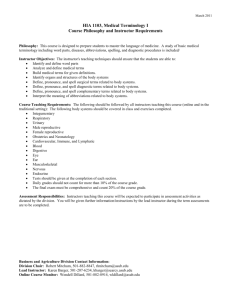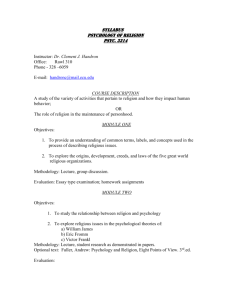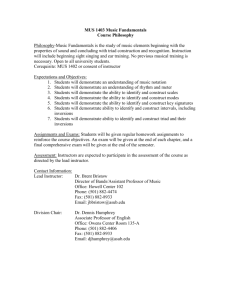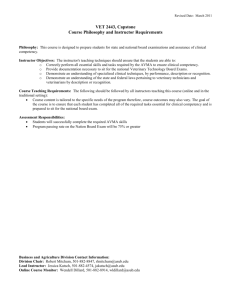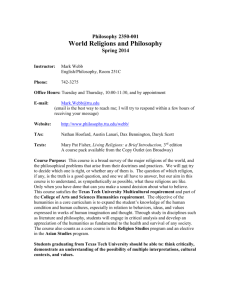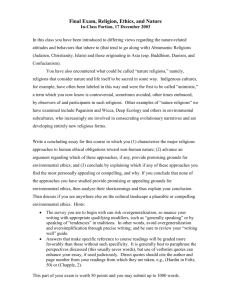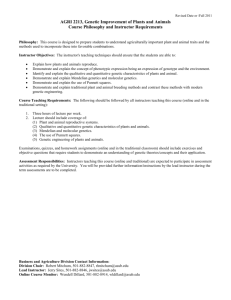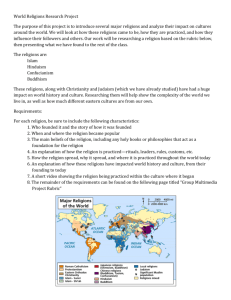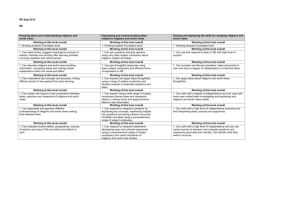Comparative Religions
advertisement
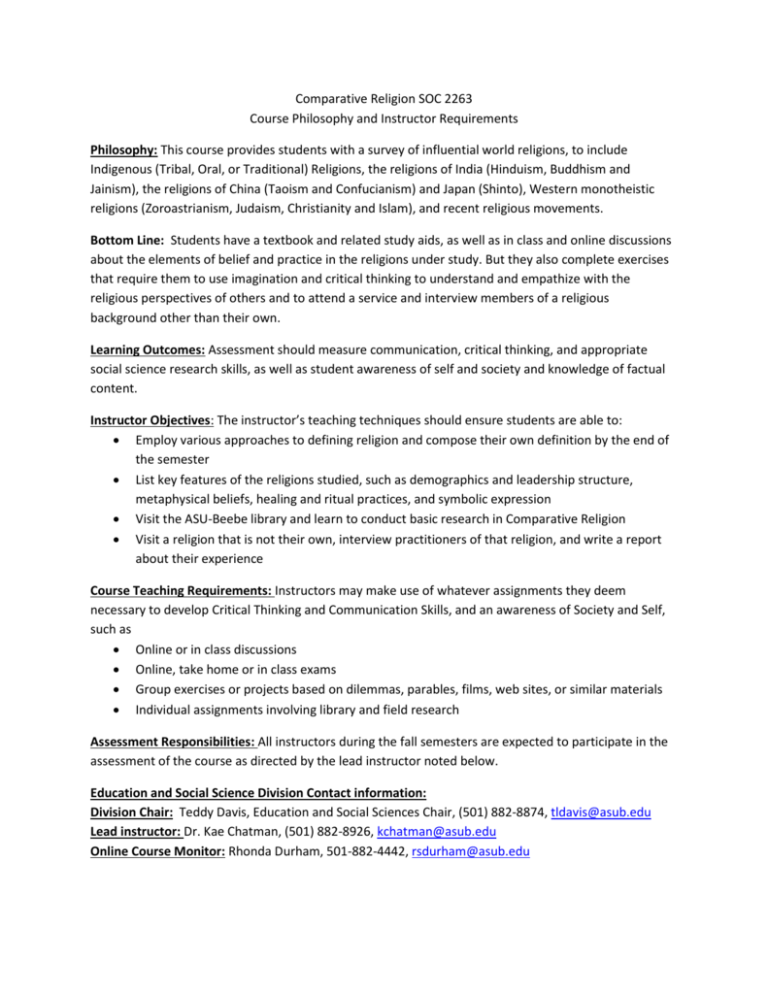
Comparative Religion SOC 2263 Course Philosophy and Instructor Requirements Philosophy: This course provides students with a survey of influential world religions, to include Indigenous (Tribal, Oral, or Traditional) Religions, the religions of India (Hinduism, Buddhism and Jainism), the religions of China (Taoism and Confucianism) and Japan (Shinto), Western monotheistic religions (Zoroastrianism, Judaism, Christianity and Islam), and recent religious movements. Bottom Line: Students have a textbook and related study aids, as well as in class and online discussions about the elements of belief and practice in the religions under study. But they also complete exercises that require them to use imagination and critical thinking to understand and empathize with the religious perspectives of others and to attend a service and interview members of a religious background other than their own. Learning Outcomes: Assessment should measure communication, critical thinking, and appropriate social science research skills, as well as student awareness of self and society and knowledge of factual content. Instructor Objectives: The instructor’s teaching techniques should ensure students are able to: Employ various approaches to defining religion and compose their own definition by the end of the semester List key features of the religions studied, such as demographics and leadership structure, metaphysical beliefs, healing and ritual practices, and symbolic expression Visit the ASU-Beebe library and learn to conduct basic research in Comparative Religion Visit a religion that is not their own, interview practitioners of that religion, and write a report about their experience Course Teaching Requirements: Instructors may make use of whatever assignments they deem necessary to develop Critical Thinking and Communication Skills, and an awareness of Society and Self, such as Online or in class discussions Online, take home or in class exams Group exercises or projects based on dilemmas, parables, films, web sites, or similar materials Individual assignments involving library and field research Assessment Responsibilities: All instructors during the fall semesters are expected to participate in the assessment of the course as directed by the lead instructor noted below. Education and Social Science Division Contact information: Division Chair: Teddy Davis, Education and Social Sciences Chair, (501) 882-8874, tldavis@asub.edu Lead instructor: Dr. Kae Chatman, (501) 882-8926, kchatman@asub.edu Online Course Monitor: Rhonda Durham, 501-882-4442, rsdurham@asub.edu

